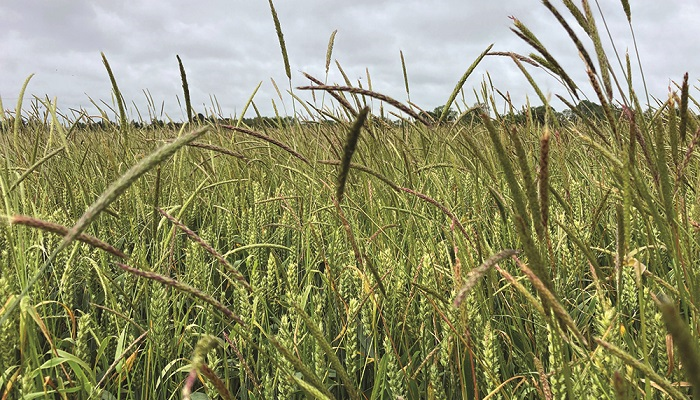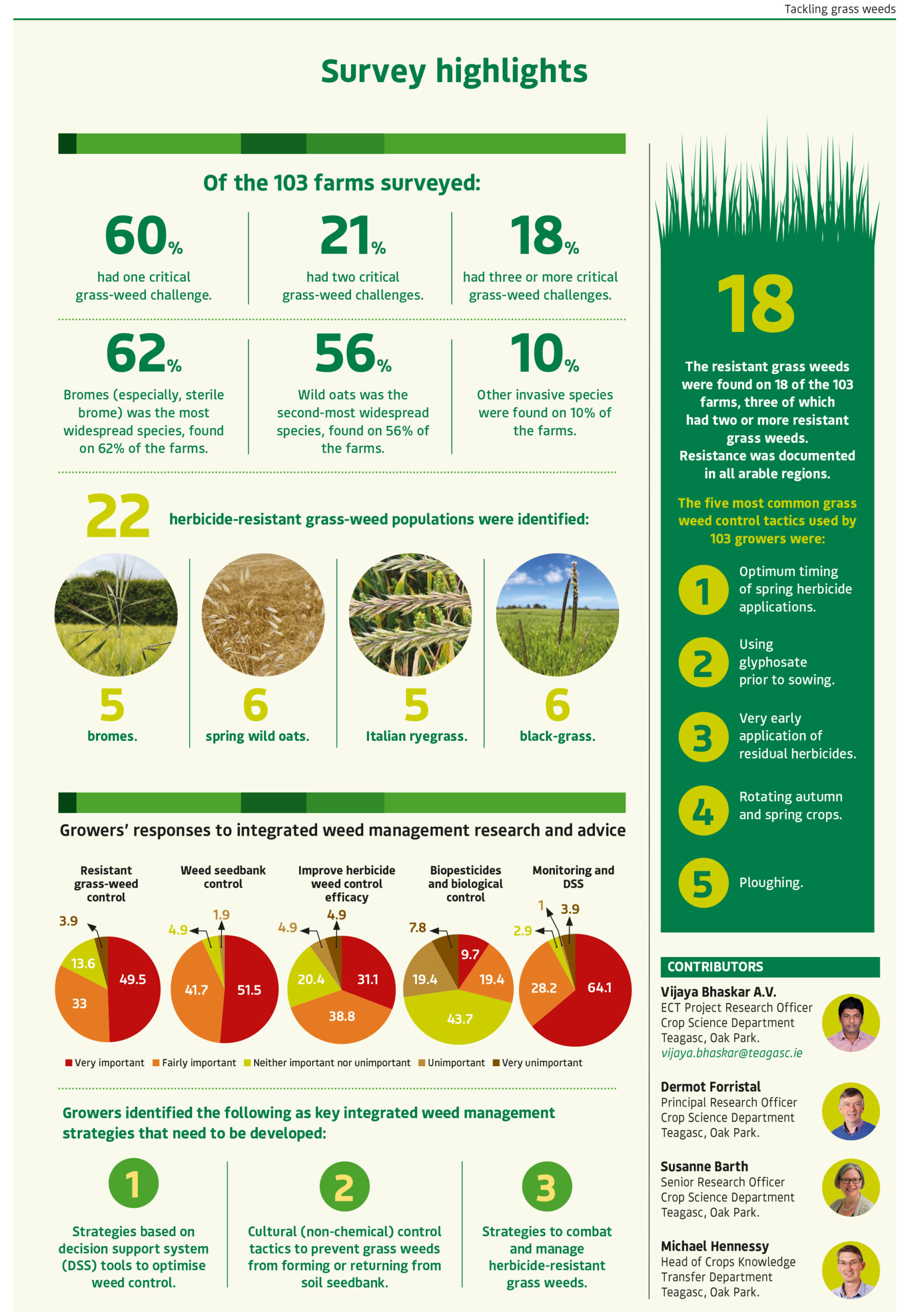08 September 2022
In the weeds

Grass weeds are becoming an increasing problem in Irish tillage and resistance to herbicides that control grass weeds has been documented since 2019. Teagasc researchers have conducted a unique survey determining the level of the grass weed challenge in Ireland. Find out more
Grass weeds are becoming an increasing problem in Irish tillage (the preparation of land for growing crops), due to the introduction of practices that enable their rapid growth and their evolving resistance to herbicides.
Resistance to herbicides that control grass weeds has been documented in suspect populations such as wild oats, black-grass and Italian ryegrass since 2019. What researchers didn’t know, however, was the extent of the grass weed problem on tillage farms within Ireland, the tactics used to control the weeds and the herbicide resistance status of them.
This information is necessary to facilitate the development of sustainable integrated weed management (IWM) practices so, as part of the Enable Conservation Tillage (ECT) project, a survey of weed management practices and grass weed occurrence was carried out by Teagasc researchers in 2020 and 2021 to address this deficit.
Collecting the data
In 2020, 103 Irish tillage farms were surveyed and then the occurrence of grass weeds was assessed on these farms in both 2020 and 2021. Growers were interviewed using a structured questionnaire to determine their grass weed problems, weed control tactics and IWM components requiring research and advice.
On each farm, one cereal field with critical grass weeds and known management history was selected for grid-based population surveys carried out in mid-summer of each year. For each grid square, a central GPS co-ordinate was logged and a weed score of 0 (absent) to 10 (complete weed cover) was recorded and validated by limited weed counts.
In some farms, more than one field was evaluated due to the incidence of more than one difficult-to-control grass weed type. In farms where mixed difficult-to-control grass weeds were found in the same study fields, each species was assessed separately to obtain individual field-level data.
Over 160 population seed samples from the 103 farms were also collected for glasshouse-based resistance testing with the most commonly used relevant herbicides. The highlights of this survey can be seen on page 17.
Benefits to industry
This survey is the first of its kind, determining the level of grass weed challenges – including herbicide resistance – in Ireland. The results confirm that Ireland is facing an increasing grass weed problem and high levels of herbicide resistance, in black-grass and Italian ryegrass in particular.
EVOLVE, a new Department of Agriculture, Food and the Marine (DAFM)-funded research project, will build on this research, targeting grass weeds and carbon-smart cultivation systems. With a focus on black-grass and Italian ryegrass, the project will analyse the types of resistance evolving and design effective management strategies to cope with the growing grass weed challenge.
The project will also investigate whether native black-grasses have independently evolved resistance or whether they are of UK origin, impacting on control options. Long-term field experiments evaluating a range of IWM strategies will also be established.
The survey outcomes reported here will help to inform the work proposed in the EVOLVE project, in addition to providing up-to-date insights for industry to act on now.
Check out the Summer 2022 issue of TResearch to find out how members of the ECT project developed an easy-to-use mobile app to support the collection of data for this project.

FUNDING
The Enable Conservation Tillage (ECT) Project is a European Innovation Partnership (EIP) funded by the Department of Agriculture, Food and the Marine.
Acknowledgements
We would like to thank John Mahon (Teagasc) and all project stakeholders for their input.
Contributors
Vijaya Bhaskar A.V. , ECT Project Research Officer, Crop Science Department, Teagasc, Oak Park. vijaya.bhaskar@teagasc.ie
Dermot Forristal, Principal Research Officer, Crop Science Department, Teagasc, Oak Park.
Susanne Barth, Senior Research Officer, Crop Science Department, Teagasc, Oak Park.
Michael Hennessy, Head of Crops Knowledge, Transfer Department, Teagasc, Oak Park.
This article featured in the TResearch Autumn 2022 Magazine. TResearch is an official science publication of Teagasc. It aims to disseminate the results of the organisation’s research to a broad audience.
If you liked this article, you might like others in this publication. View TResearch Summer 2022 here (PDF)
Find out more information and advice from the Teagasc Crops team here. The Teagasc Crops Specialists issue an article on a topic of interest to tillage farmers every Thursday on Teagasc Daily. If you have further queries you can talk to your Teagasc tillage advisor. Find your local Teagasc office here
